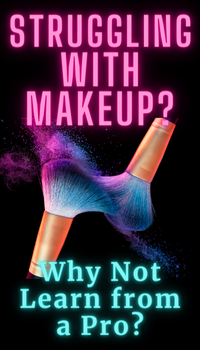PERPETUAL CHANGE — Radio, the Internet and The TG Community

Internet Radio Part 1 — Ethan St. Pierre
Music is an art form. The music business, however, is a great deal more. It encompasses many different disciplines, such as the study of demographics and marketing; entertainment law; retailing; tour support; publishing; etc.; etc. You name a business related pursuit and it will have a function in the business of music.
Radio encompasses a little bit of every facet of the business end of music. It’s a medium we’ve all grown up with, and probably take for granted. As with music and the business end of music, radio in all its formats has managed to survive and evolve right along with every change in popular taste and culture.
And the most recent, and every expanding change in popular culture is the Internet. Okay, that’s kind of a given, but it’s also the reason behind this very different installment of this column. Our purpose this month is to look at the relationship between radio, the Internet, and the transgender music community.
 Since Internet Radio has become such an important tool for all involved, this will be a two part series. This first installment is a look at the medium from a broadcasters point of few. Transgender broadcaster and activist, Ethan St. Pierre, graciously consented to offer his insights on this subject.
Since Internet Radio has become such an important tool for all involved, this will be a two part series. This first installment is a look at the medium from a broadcasters point of few. Transgender broadcaster and activist, Ethan St. Pierre, graciously consented to offer his insights on this subject.
In part two of the series (coming next month) we’ll hear from several different artists within the GLBT music community who have utilized Internet Radio to help further their careers.
A bit of historical background information is perhaps needed at this point. The actual phrase “Internet Radio” means several different things, involving different versions of the radio format. It can be a streamed live program that is similar to standard terrestrial radio; an archive site with on-demand music files; a commercial, corporate owned station utilizing the Internet to reach a more selective audience; or something as simple as a wannabe DJ/music fan using the Internet to create his or her own show.
The first Internet Radio stations began appearing in the mid-1990s with little fanfare. Remember, at that time, the growing popularity of home computers, and of the Internet itself, was the big news in popular culture.
By the late 1990s, it became apparent the home computer was not a passing fad. Neither was the availability of the Internet, and all it contained. With Internet Radio beginning to be taken seriously, and starting to eclipse standard terrestrial radio, the question of music ownership and royalty payments became a major concern. The Digital Millennium Copyright Act of 1996 was enacted, which forbids Internet operators from allowing copyrighted music to be available for free downloads without permission.
Meetings held between the copyright office, record labels, and Internet Radio operators enabled all parties to agree on a rate of a fraction of a penny per song depending on the amount of spins and audience size. Because of this, many webcasters have started playing only unsigned or indie acts in order to avoid the payments.
Large companies, however, can afford to fund networks such as Yahoo’s LaunchCast, Live365, and ShortCast, to name just a few.
This is where Ethan St. Pierre comes into the narrative. (Featured here in March, 2004.) He is know as an activist through his work with NTAC, and began his Internet radio career when a film maker named Shelby DuPrey, who was doing a documentary on transgender lobbying, invited him to do some informal web broadcasts with her. From this loosely organized start, Ethan began contributing to a comedy show called Radio Power.
When that ended, Ethan wanted to continue and began a show called TransFM. This in turn lead to a gig doing announcements for another show called Gender Talk. This lasted until 2006.
“After Gender Talk ended, I knew there were other podcasts popping up; all different types of genres that were in the crossdressing realm,” Ethan said. “I wanted one place where I could stream 24/7 and listen to the variety of shows that were out there. I wanted it to be a collective voice of our community. I wanted it to be an educational tool for our whole community and for society.”
Ethan’s show is basically done in two parts, a music segment and a talk/interview portion.
“I started a few years ago doing a show called Sodium Pentathol Sunday. That’s where I play music from 5 to 8 p.m.,” Ethan said. “From 8 to 10, I do interviews. The talk portion of the show is The Radical Tranny. I’m sure it was 2002 when I started.”
These interviews are available as podcasts. They can be obtained by going to transfm.org, where all the shows are archived. The most recent shows will have the person interviewed along with a bio. You access this by clicking on a little yellow horn on the web page.
“I make it a point every year to broadcast live during the holiday season, from November through January, because it’s the most volatile time for people in our community,” Ethan said. “It’s extremely important to hear a friendly voice. We keep our phone lines open. I have three major donors who have pretty much funded my whole holiday broadcast. I’m extremely grateful for that. They know the importance of broadcasting live during that season”.
During the rest of the year, Ethan offers the show as a podcast, and the interview segment is done about every other week. The interviews are sometimes timed to correspond with the political climate of the trans community.
When talking about the finances of his show, Ethan stated that he is a member of the Live365 network. Royalty payments are taken care of and it also allows for easier uploading of material. But, like everything else in life, nothing is free.
“I pay a monthly fee, and it depends on how many listeners you want,” he said. “If people pay to listen to you, for instance, it’s like a fee of $7 a month. You can (potentially) have unlimited listeners. Right now, I believe I can have 100 listeners who don’t have to pay, and then, unlimited listeners if they want to pay.
“I have a non-commercial listenership, that means that any time I play a remote broadcast that’s not live they can either hear it commercial free if they pay for it, or they can have a free ser vice with commercials in between the shows.”
Musically, what you’ll hear on Ethan’s show doesn’t stick to any one genre. He says that he’ll pretty much play anything that’s good quality. What you won’t hear broadcast on TransFM is any music that can be regarded as harmful to the community. “If it promotes violence, misogyny, hate, any of that…I can’t bring myself to do that,” Ethan said. “I listen to the words.”
Over the years, Ethan has seen his listenership grow right along with the concept of Internet Radio itself. He now claims listeners from place such as The People’s Republic of China, Cuba, and other countries world wide where there is any kind of interest in the American transgender community.
“When I first started, there were very few people who were taking it seriously. Very few people were tuning in,” Ethan said. “Now, people realize it’s global. We have access to people around the world, and we can do whatever we want. We can say whatever we want. We have complete control over the message that goes out. People are realizing that this is the two-way education that educates people not only on trans issues, but to the music that’s out there.”
Ethan’s experience with artists whose music he features has been positive. For the new act, or the struggling indie band, having access to a diverse market is valuable. Royalty considerations only affect artists signed to major labels.
For the labels part, they view Internet radio as a sort of two-edged sword. At the very least, it’s a new promotional tool.
“It’s forced the price of music down,” Ethan said. “The record companies are crying because of the Internet and free access. If you’re savvy in any way, shape, or form, you can get free music. Period.
“I think that if the government doesn’t try to control it, by making it a one-way street again, if it stays the way it is, I think that for musicians it will be wonderful. We’ll be able to web cast concerts. There are many possibilities. It’s just phenomenal.”
The 24/7 direct link to the TransFM broadcast is Live365. Ethan can be reached at Radicalguy@gmail.com, or at TransFM.org.
ALSO THIS MONTH…
Correction: In last month’s interview with jazz artist Jennifer Leitham, some of the information about her musicians was incorrect. Josh Nelson, piano, has been playing with Jennifer for four years, and drummer Randy Drake has worked with Jennifer on and off since the late 1980s on various projects. Also, the composers of West Side Story are Leonard Bernstein and Jerome Robbins. Sorry for any inconvenience.
 Given the recent fighting in Israel and Gaza, I wanted to see if Aderet, whom we featured in our companion Tranvocalizers column in September, was okay. Here is what she sent by way of an answer:
Given the recent fighting in Israel and Gaza, I wanted to see if Aderet, whom we featured in our companion Tranvocalizers column in September, was okay. Here is what she sent by way of an answer:
I feel great! but I also send a prayer every day to my country Israel to get soon peace and quiet and all the Israeli soldiers will come back to their famillies healthy and alive.
All the citizens in Israel are very united and the feelings are good 🙂 unfortnately the media out of Israel present the wrong picture about Israel and not the real truth about the war and how Hamas are dangerous to all the countries in the middle east.
I want you to send all my fans in U.S my blessing, my love and a lot of kisses and hugs from me.
the latest news are that my last dance single Call My Name become a new hit in Israel step by step in spite the war.
Wish all the best to you and thank you for everything, you are wonderful!
Aderet
Category: Transgender Fun & Entertainment










